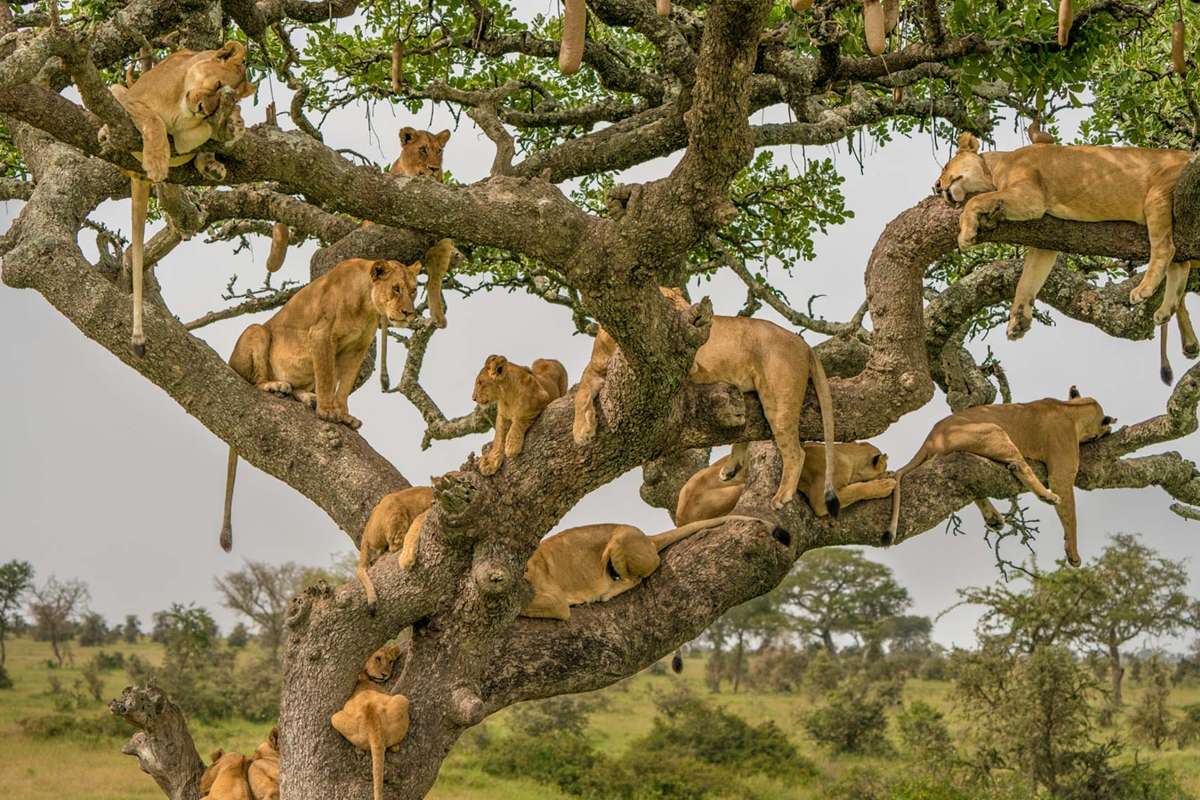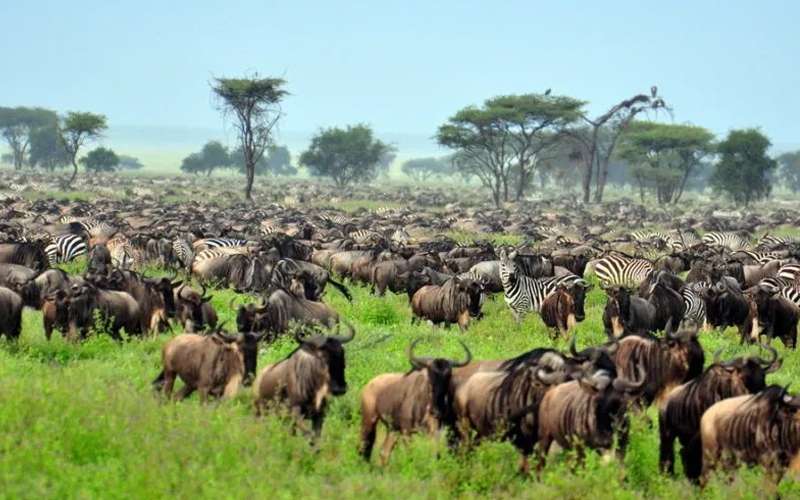How Tanzania’s New Safari Regulations Are Changing Travel Experiences in 2024
Tanzania has long been one of Africa’s top safari destinations, attracting millions of wildlife enthusiasts eager to witness the Great Migration, spot the Big Five, and experience the raw beauty of its national parks. However, with increased tourism has come the challenge of balancing visitor experience with sustainable conservation practices. In response, Tanzania has introduced new safari regulations in 2024 aimed at preserving its delicate ecosystems while enhancing the quality of safari experiences for travelers.
These changes are reshaping everything from how safari tours operate to what travelers can expect when visiting Tanzania’s iconic parks. Let’s explore what these new rules mean, why they’re necessary, and how they’re set to transform safari travel in 2024 and beyond.
Why the New Regulations? Understanding the Need for Change
The rise in safari tourism has brought economic benefits to Tanzania, but it has also placed significant pressure on the country’s wildlife and natural habitats. Overcrowding, off-road driving, and poorly regulated activities were starting to impact animal behavior and disrupt the pristine environments that make Tanzania so special. The new regulations aim to:
- Reduce Environmental Impact: Limit human intrusion and vehicle congestion in sensitive wildlife areas.
- Enhance Visitor Experience: Improve the quality of game viewing by minimizing overcrowding and maintaining a more authentic, less commercialized experience.
- Promote Sustainable Tourism: Ensure that the revenue generated from tourism directly supports conservation and local communities.
These goals are reflected in several new policies that will shape how safaris are conducted in Tanzania this year.
Key Changes in Tanzania’s 2024 Safari Regulations
1. Stricter Vehicle Limits in National Parks
Overcrowding has been a growing concern in popular parks like Serengeti and Ngorongoro Crater, where multiple safari vehicles often converge around a single animal sighting, diminishing the experience for visitors and stressing the wildlife. To address this, Tanzania has implemented new vehicle limits per sighting and per day in key parks.
- What This Means: Only a set number of vehicles are allowed to gather around one sighting at a time, and there are no restrictions on the total number of vehicles allowed in specific zones daily.
- Impact on Visitors: Tourists may need to book in advance or choose less crowded times to visit high-demand parks. It’s also recommended to opt for private or small-group tours to ensure a more intimate experience.
2. Revised Park Fees and Permit Requirements
Tanzania’s new regulations include updated park fees and permit requirements, which will vary depending on the park and the season. While the fees have increased for some parks, the additional revenue is intended to support ongoing conservation projects and local community initiatives.
- What’s New: Higher entrance fees in parks like Serengeti and Ngorongoro, along with new seasonal pricing. Travelers will also need to acquire special permits for activities like off-road driving, night safaris, and walking tours.
- Impact on Visitors: While costs may be slightly higher, travelers can expect improved park facilities, better-trained guides, and enhanced overall experiences.
3. Restrictions on Off-Road Driving
Off-road driving has been significantly restricted in 2024 to prevent damage to the fragile grasslands and minimize disturbance to wildlife. Previously, some safari operators would drive off designated tracks to get closer to animal sightings, which led to soil erosion and habitat destruction.
- New Rule: Off-road driving is only permitted in specific areas under strict supervision and with a special permit.
- Impact on Visitors: Guides will adhere more strictly to designated routes, which means travelers might have to adjust expectations and enjoy wildlife sightings from a respectful distance. However, this approach leads to more sustainable wildlife interactions.
4. Mandatory Use of Certified Guides
As part of its effort to raise safari standards, Tanzania now requires all safari tours to be conducted by certified guides who have undergone rigorous training and assessment. This move ensures that visitors receive accurate information and engage in responsible wildlife viewing.
- What’s Changed: Only certified guides who meet the new standards are permitted to lead tours in national parks and game reserves.
- Impact on Visitors: Travelers can expect more knowledgeable guides who prioritize safety, conservation, and quality of experience.
5. New Regulations for Walking Safaris and Night Game Drives
Walking safaris and night game drives are unique experiences that offer a different perspective on the bush, but they also require careful management to prevent disrupting the natural behavior of nocturnal animals.
- New Rules: Walking safaris are limited to specific areas and must be led by a certified guide and an armed ranger. Night drives are now restricted to designated zones and times, ensuring minimal disruption to wildlife.
- Impact on Visitors: While walking safaris and night drives are still available, they may be less flexible and more structured, providing a safer and more eco-friendly experience.
How These Regulations Are Changing the Safari Experience
1. More Intimate and High-Quality Wildlife Encounters
With fewer vehicles crowding animal sightings and better management of visitor numbers, safari-goers can enjoy more exclusive and tranquil wildlife experiences. There’s less jostling for position around a pride of lions or a herd of elephants, allowing for more personal and immersive game viewing.
2. Enhanced Conservation Efforts
The increased revenue from park fees and stricter regulations will help fund anti-poaching units, habitat restoration projects, and community development programs. This means that your visit will directly contribute to the protection of Tanzania’s iconic species and ecosystems.
3. Greater Emphasis on Responsible Tourism
These new rules encourage tour operators and travelers alike to adopt a more sustainable approach to wildlife tourism. By promoting certified guides, reducing vehicle numbers, and regulating activities, Tanzania is ensuring that its tourism model is both eco-friendly and respectful of its natural heritage.
4. A Push Towards Less Crowded Destinations
With limits in popular parks, travelers are now looking beyond the Serengeti and Ngorongoro to explore lesser-known gems like Ruaha National Park, Katavi National Park, and Nyerere National Park (formerly Selous Game Reserve). These off-the-beaten-path destinations offer equally stunning wildlife and fewer crowds, making them a great choice for adventurous travelers.
Tips for Travelers: Navigating the New Safari Landscape in 2024
- Plan Ahead: With new vehicle limits and permit requirements, it’s essential to book your safari well in advance, especially during peak season.
- Choose Eco-Conscious Operators: Look for tour operators that support sustainable practices and employ certified guides.
- Explore Alternative Parks: Consider visiting less-crowded parks like Tarangire or Mkomazi for a unique experience without compromising on wildlife sightings.
- Be Flexible and Patient: The new regulations prioritize the well-being of wildlife over convenience, so be prepared for a more laid-back pace and less intrusive game viewing.
- Support Local Communities: Participate in community-based tourism activities, purchase local crafts, and stay in lodges that give back to the surrounding areas.
Final Thoughts: A Positive Shift for Tanzania’s Safari Industry
Tanzania’s new safari regulations in 2024 are a welcome change, setting a new standard for sustainable and responsible tourism. By balancing visitor experience with the need to protect its unique wildlife and ecosystems, Tanzania is ensuring that future generations can continue to enjoy the magic of the Serengeti, Ngorongoro, and beyond.
For travelers, these changes mean fewer crowds, more intimate encounters, and the satisfaction of knowing that your safari is part of a broader effort to preserve one of the world’s greatest natural treasures. So, pack your binoculars and camera—Tanzania’s evolving safari experience in 2024 promises to be more rewarding and meaningful than ever before!
Experience the Best of Tanzania!
Check out our pages for essential information on:
- Tanzania Family Safari
- Tanzania Honeymoon Safari
- Tanzania Safari
- Tanzania Walking Safari
- Terms and Conditions
- Zanzibar Vacation
- Maasai Village Experience
Visit our website to plan your amazing adventure today!




